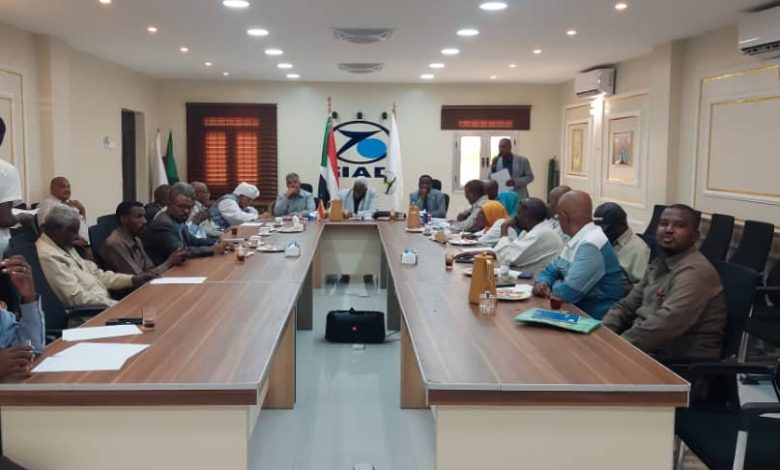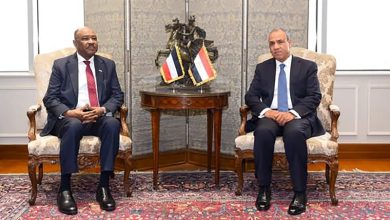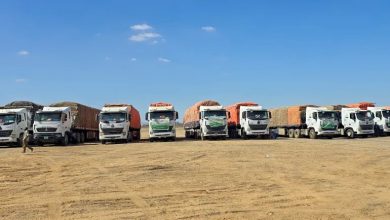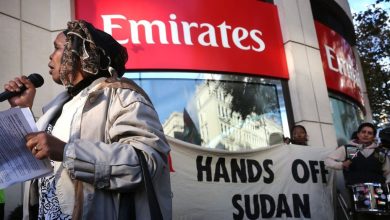The Nile River… Successes Despite “War Conditions”

Report by: Mohamed Al-Bashari
Since the outbreak of war on April 15 until now (17 months), River Nile State has received millions of people fleeing the war from Khartoum, Al-Jazeera, Sennar, and other states in search of safety and security. River Nile embraced this massive influx of Sudanese citizens, whether in shelters or with their relatives. Despite the war and its effects on River Nile, as with other states, the local government has overcome all challenges and exceptional circumstances imposed by the conflict. They continued working diligently on issues important to the people, including development and services. One of the most notable achievements was the completion of the academic year, making it the first state to resume and finish the school year. This was followed by key steps in development, including the opening of a passport factory in Atbara, the second such facility after Port Sudan.
The Passport Factory… Easing the Burden:
The efforts of the River Nile government prompted a delegation from the federal and state journalists’ unions, along with the Executive Office of the Media Association for Displaced Journalists, to visit and observe these achievements. The media delegation began their tour by meeting with the State Minister of Culture and Information, Mustafa Al-Sharif. They then visited the newly inaugurated passport factory in Atbara, a unique accomplishment that reduces the suffering of citizens regarding passport issuance times. The factory director, Colonel Ali Musa, provided a detailed explanation of the passport printing process up to delivery. He mentioned that the factory serves three states: River Nile, Northern, and Khartoum. He also explained that passport supplies come from Slovenia but are irregular. The presence of the factory in Atbara has encouraged citizens to expedite their applications, and he emphasized that forging Sudanese passports is difficult due to their high security features.
The Police Director… Announcements and Reassurances:
After visiting the passport factory, the delegation met with the Director of River Nile State Police, Major General Salman Mohamed Al-Tayeb. He stated that the Atbara passport factory, which was recently inaugurated, produces 7,000 passports daily, noting the high level of security in these documents. General Salman, in a briefing to the media, explained that the factory meets the needs of several states. He also shared updates about efforts led by the Director General of the Police Forces to acquire machines for printing national ID cards, with River Nile expected to soon become a hub for issuing them. In a different context, General Salman affirmed that River Nile State is secure, though he emphasized that foreign presence remains the biggest security threat. He revealed that there are 8,000 foreigners in the state, of which around 4,000 have been deported. He also confirmed the presence of strong forces ensuring the state’s security, including specialized units trained for urban warfare. Regarding “sleeper cells,” he said it’s impossible to claim they don’t exist, urging citizens to cooperate with security forces and remain vigilant.
Governor’s Statements:
The delegation concluded their tour with an extended meeting with River Nile Governor Mohamed Al-Badawi Abdul-Majid. The governor expressed appreciation for the media and called for expanding media visits to cover all localities and sites to highlight what has been accomplished in recent times and examine both positives and negatives. He announced his support for the establishment of a city for journalists and media professionals in the state. The governor provided a detailed review of the state’s performance over the past period, especially regarding development and service projects, as well as achievements in sectors such as water, education, health, infrastructure, and electricity. He explained that despite the large influx of displaced people due to the rebellion, services in the state remain stable. He added that River Nile represents a microcosm of Sudan, with its mining sites and markets bringing together people from across the country. He affirmed that everyone lives in peace and security, thanks to the awareness of the state’s residents, who reject tribalism and racism. He also emphasized that all security and executive bodies in the state are working in full harmony, united in their efforts.
The governor pointed to the significant outcomes of a recent delegation visit to Turkey, stating that the results will soon become evident. The visit focused on agricultural manufacturing projects, as well as plans for tanneries, leather production, and the iron industry.
GiAD’s Presence:
The CEO of GiAD Group, Dr. Abdullah Abdel-Maarouf, gave a detailed briefing on the group’s programs and projects, which have gained momentum in River Nile State since the outbreak of rebellion in Khartoum. He announced several upcoming projects, including the provision of agricultural equipment to small-scale farmers and the introduction of electric cars to the state in the near future. He also highlighted the ongoing cooperation with the Sudanese Journalists’ Union to soon provide vehicles for journalists.



